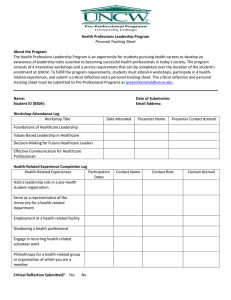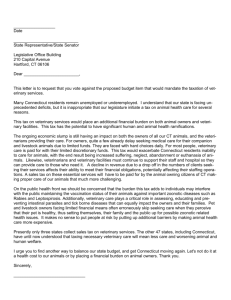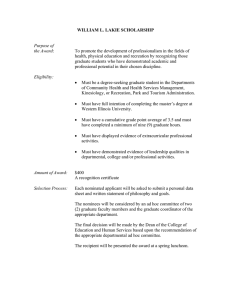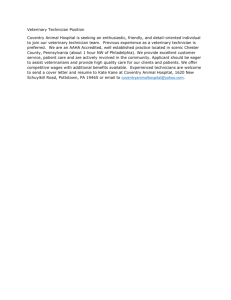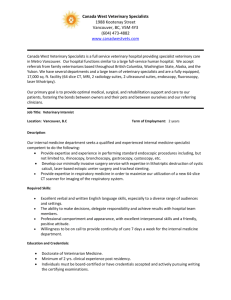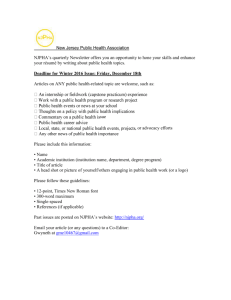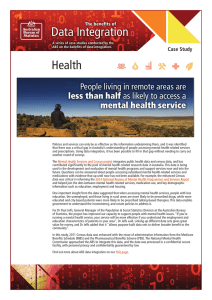Trusting Pet Healthcare Websites
advertisement
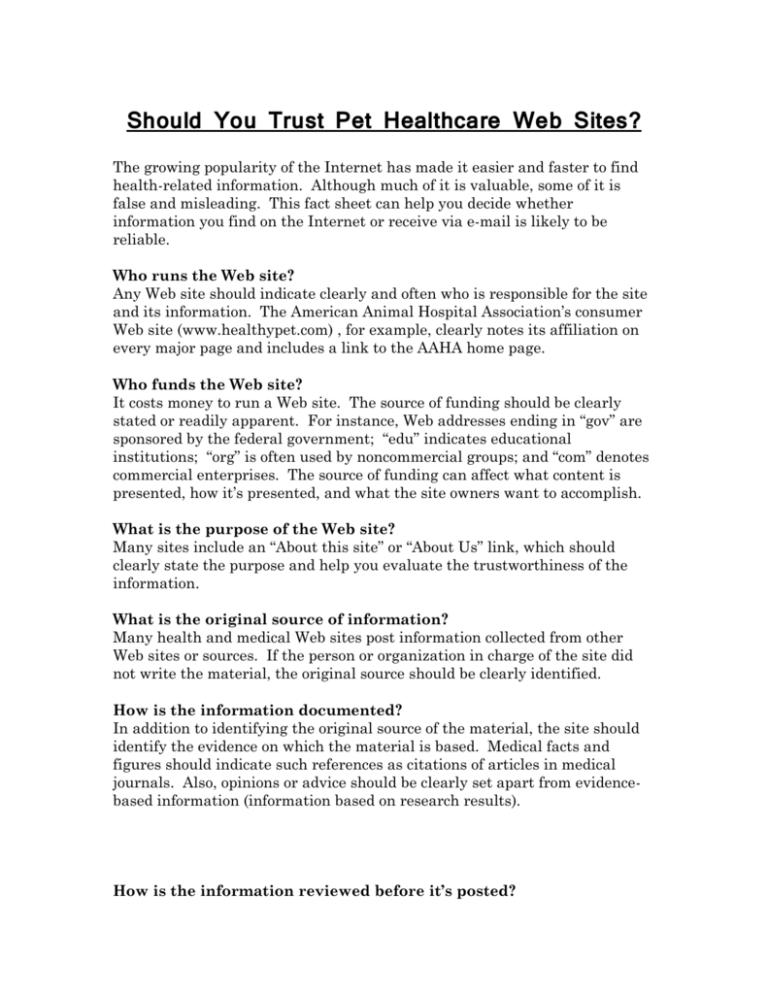
Should You Trust Pet Healthcare Web Sites? The growing popularity of the Internet has made it easier and faster to find health-related information. Although much of it is valuable, some of it is false and misleading. This fact sheet can help you decide whether information you find on the Internet or receive via e-mail is likely to be reliable. Who runs the Web site? Any Web site should indicate clearly and often who is responsible for the site and its information. The American Animal Hospital Association’s consumer Web site (www.healthypet.com) , for example, clearly notes its affiliation on every major page and includes a link to the AAHA home page. Who funds the Web site? It costs money to run a Web site. The source of funding should be clearly stated or readily apparent. For instance, Web addresses ending in “gov” are sponsored by the federal government; “edu” indicates educational institutions; “org” is often used by noncommercial groups; and “com” denotes commercial enterprises. The source of funding can affect what content is presented, how it’s presented, and what the site owners want to accomplish. What is the purpose of the Web site? Many sites include an “About this site” or “About Us” link, which should clearly state the purpose and help you evaluate the trustworthiness of the information. What is the original source of information? Many health and medical Web sites post information collected from other Web sites or sources. If the person or organization in charge of the site did not write the material, the original source should be clearly identified. How is the information documented? In addition to identifying the original source of the material, the site should identify the evidence on which the material is based. Medical facts and figures should indicate such references as citations of articles in medical journals. Also, opinions or advice should be clearly set apart from evidencebased information (information based on research results). How is the information reviewed before it’s posted? Health-related Web sites should provide information about the medical credentials of the people who prepare or review the material. Veterinarians in the United States are doctors of veterinary medicine (DVMs) or veterinary medicine doctors (VMDs)—the equivalent of an MD in human medicine. Common specialist credentials include DACVIM (internal medicine), DACVS (surgery), and DACVD (dermatology). How current is the information? Web sites should be reviewed and updated regularly. It’s particularly important that medical information be current and that the most recent update or review date be posted. Even if the information hasn’t changed, it’s helpful to know that the site owners have reviewed it recently to ensure that is still valid. How does the Web site choose links? Reliable Web sites usually have a policy about how they link to other sites. Some medical sites take a conservative approach and don’t link at all. Some link to any site that asks or pays for a link. Others link only to sites that have met criteria. How does the Web site manage interactions with users? There should be a way for you to contact the site owners with problems, feedback, and questions. If the site hosts a chat room or other online discussion areas, it should tell you about the terms of using the service. Is the service moderated? If so, by whom and why? Before you participate, spend some time reading the discussion without joining in. How can you verify the accuracy of information you receive via email? Any e-mail messages should be carefully evaluated. Consider the origin of the message and its purpose. Some companies or organizations use e-mail to advertise products or attract people to their Web sites. The accuracy of health-related information may be influenced by the desire to promote a product or service. It’s important to carefully consider the source of e-mail and other Internet-based information with your veterinarian. *This form is adapted from information provided by the Cancer Information service, part of the National Cancer Institute. Visit cis.nci.nih.gov to learn more.


